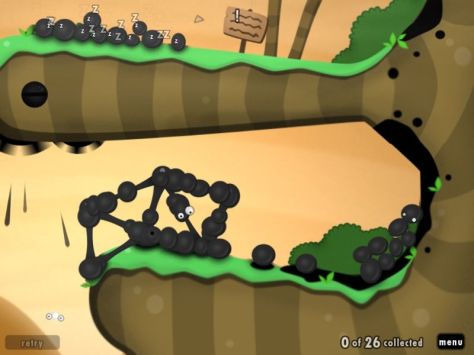Popular video game deal Humble Bundle had its highest-selling bundle last month, raising $10.5 million with most of the money going to charity.
Humble Bundle curates bundles of digital media—usually computer games, but occasionally other media like music and e-books—and sells them as pay-what-you-want downloads for two weeks at a time. The site also features weekly bundles.
Users who pay more than the average amount receive extra content. For video games, users get access to the games on the digital distribution platform Steam if they pay more than $1.

The Humble Origin Bundle was sold from August 14 to August 29, and it included ten games from video game giant Electronic Arts, which could be downloaded through EA’s distribution platform, Origin (most of the games could also be downloaded through Steam). 2.1 million bundles were sold, and the bundle’s sales far surpassed the previous record holder, Humble Indie Bundle V, which raised $5.1 million.
The charities included in the promotion were the American Red Cross, the American Cancer Society, the Human Rights Campaign, the San Francisco AIDS Foundation, and Watsi.
To date, Humble Bundle has made more than $50 million in cumulative revenue, with more than $20 million going to charity.
Bundle buyers can choose how their contributions are divided up among the charities, game developers (most bundles feature multiple developers) and Humble Bundle itself. For the Humble Origin Bundle, though, EA declined to take any money, instead letting all contributions go to the charities or Humble Bundle.
In addition to being a very generous philanthropic move, declining to keep any of the funds raised will help EA’s company image. I don’t mean to sound like I think EA only made the gesture for good PR or a tax writeoff, but it for a company that has had its fair share of controversies, giving back might take some of the heat off, especially when EA has been criticized for requiring that three of the most popular games in the bundle—Battlefield 3, The Sims 3, and Dead Space—be downloaded through its own distribution platform.
While the EA bundle was generally well received, some took issue with Humble Bundle’s occasional departure from its indie-focused origins. The site started out with only games from independent developers that were DRM-free and could run on multiple operating systems.
Game Politics conducted a poll last week asking readers, “What do you think of the Humble Bundle these days?” Though the results were mostly positive, 27 percent said it was “hit or miss” in its adherence to its founding principles, and 10 percent said the site “had lost its way.”

In November 2012, the site released its first bundle from a large publisher, THQ.
Unlike previous bundles, the Humble THQ Bundle was exclusive to Windows (most are also available on Apple OSX and Linux) and had a DRM restriction, in that its games had to be downloaded and played through Steam. Some future bundles also had these restrictions.
Addressing the decision to include a major game publisher in a bundle, a Humble Bundle representative told Rock, Paper, Shotgun, “When THQ expressed interest in our pay what you want plus charity model and willingness to let us bundle so many top tier titles, we couldn’t believe it at first. But trying to turn up our noses at this epic chance to make gamers happy and help worthy causes like Child’s Play and the American Red Cross could only have been defined as arrogance. We had to try and we were extremely curious to see what would happen.”
The charity aspect is most important. Humble Bundle made the right decision in allowing bigger publishers to participate because of the money these publishers could bring in for nonprofits, even at the expense of Humble Bundle’s original goals.
The concern that allowing these companies in will draw attention away from smaller developers is legitimate, but in the ten months since the THQ bundle, only two other big publishers (EA and Koch Entertainment’s Deep Silver) have been featured, so the program still features the independents most often.
Furthermore, the occasional inclusion of a big-name publisher could get bring awareness of the Humble Bundle that would benefit the other developers featured. People could learn about the site or become interested in it because of the EA bundle and then come back to check out future indie bundles.
Everyone needs a point of entry to discovering new things, and judging by the amount of money the Humble Origin Bundle made, many people found it last month, and good causes benefitted as a result.